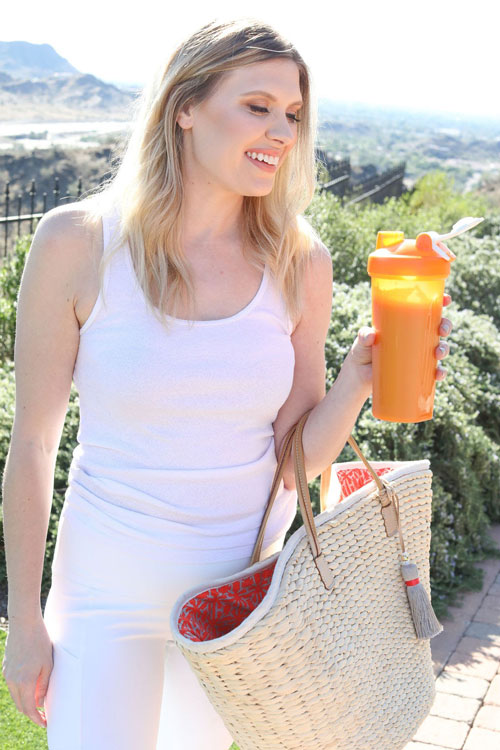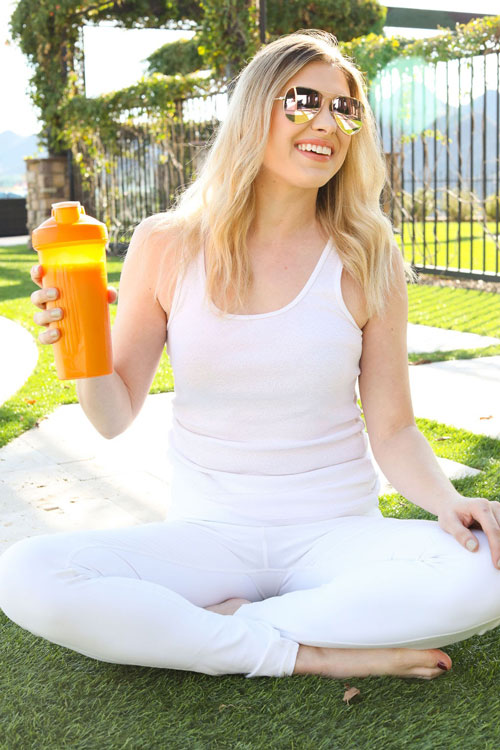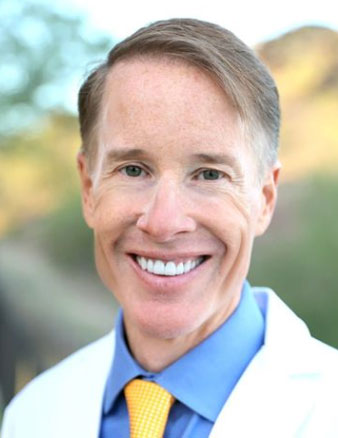I recently received a really good question about the relationship between iodine and breast cancer. It was so good, that I want to base our discussion today around it. Here’s what you need to know about whether or not iodine prevents breast cancer.
A reader reached out and told me that they felt I made a good case for minimizing iodine. That said, she was concerned about her breast health. She had seen that going “low-iodine” was a risk for breast cancer.
Ultimately, she was afraid that by helping her thyroid she was endangering her health. So, is this true? Let me provide the answer to you in the clearest terms.
Product Recommendation: I have assembled these fantastic supplements to help support healthy female hormone levels and aid the body’s natural hormone response, the Thyroid Hormone Regulation Bundle
The Short Answer
Yes, it is safe.
I know, I know, it would help for me to expand upon this – and I will, I promise. But, the short answer here is that it is perfectly safe to dial in your iodine.
Key Insight: Not only that, but it is likely safer to be low-iodine than high-iodine, in terms of your risk of getting breast cancer.
The consensus of the current evidence suggests that having excessive iodine raises the risk of breast cancer. Some have even suggested that urinary iodine levels could be used to screen for those who may be at risk.1
The consensus of the current evidence suggests that having excessive iodine raises the risk of breast cancer. Some have even suggested that urinary iodine levels could be used to screen for those who may be at risk.1

Where Did The Story Start?
So, because the evidence is on the side of a low-iodine lifestyle, how did this story get started?
Besides the thyroid, we know that iodine builds up in a handful of other parts of the body (Read More: The Full Story On Iodine). One of these is in the breasts.
Key Insight: One of my favorite rules when it comes to eating is that the more a certain food can stain your tablecloth or your shirt, the better it is for you! Beets are a great example of that rule and they are really great when it comes to your overall health.
In fact, breast tissue concentrates iodine much like thyroid tissue. This is so that breast milk can contain an adequate concentration for fetal thyroid development.
With the exception of the thyroid, there is more iodine in the female breast tissue than anywhere else in the body. That’s how much you can find there.
Unlike other nutrients, iodine requires concentration. For example, you need more iodine in your thyroid than your bloodstream can provide.
Therefore, you concentrate it.
Iodine & Dosages
So, now we know that iodine is unique because the levels of it found in the bloodstream are not enough for the thyroid to function (or for the breast tissue to make enough milk).
Building on that, it’s a case to where whenever the body is exposed to a high dosage of iodine, the doses need to be extremely exact.
That’s because, whenever the body is exposed to a high dose of iodine, it can cause things to shut down completely. In the thyroid, this can stop every function for around three weeks.
For some individuals, though, it can never return to normal.
In the breast tissue, high doses of iodine can stop the absorption of iodine and sodium within breast cells.
Key Insight: This is why high doses of iodine can temporarily ease the pain of fibrocystic breast disease.
In this case, the relief of symptoms in fibrocystic breast disease cobbled together the assumption that an iodine deficiency was to blame.
By turning off the concentrator in the breast, with a mega-dose of iodine, you end up creating a diuretic effect (where less fluid builds up in the breast tissue).
Bottom Line: It lowers the amount of fluid in the breasts, but does not address any of the relevant mechanisms beyond the disease itself.
Breast Cancer Risk & Iodine Studies

Way back in 2003, a study asked whether there could be a link between iodine intake and the risk of breast cancer.
This thought process built on the existing understanding that there was overlap between autoimmune thyroid disease risk and breast cancer.
The main population that led to this speculation were Japanese women on traditional diets. They are known to have a high intake of iodine and low rates of breast cancer.
That said, there are a lot of factors at play here that changes the way we can compare populations. For instance, Japanese women have:
- Lower body weight
- Increased soy intake
- Green tea intake
- Seafood intake
- Increase physical activity (on average)
These are all things that are thought to be more relevant to breast cancer risk than iodine.
Digging Deeper Into Follow-Up Studies
There was one link that emerged surprising many people.
It turns out that having positive thyroid antibodies seemed to be protective against breast cancer.2
Overall, the rates of breast cancer among Japanese women is low, and their dietary intake of sea vegetables is high. Yet, their rate of thyroid disease is also elevated.
One of the more recent papers to address this issue found that those with the lowest iodine levels had one third the breast cancer risk as those with normal-to-high levels.3
Key Insight: In fact, those with the highest iodine levels were eight times more common in the group with breast cancer than in the group without it.
In this particular study, women with breast cancer were compared with women who did not have it. Researchers compared them for thyroid hormone levels and their urinary iodine to creatinine ratio.
They were categorized into three groups based on their iodine status:
- Low (<100 µg/l)
- Normal (100–200 µg/l)
- High (>200 µg/l)
Bottom Line: Despite the fact that some have speculated that thyroid function has an effect on breast cancer risk, that did not show up here. Thyroid levels did not predict breast cancer.
What Did?
Iodine levels.4
Because breast cancer cells absorb iodine preferentially, there has even been some work on using radioactive iodine as a way to target them (much like it is used against thyroid cells).5
Right now, radioactive iodine is used to kill thyroid cells when it is overactive or when it is cancerous (Read More: Is Radioactive Iodine For Everyone?) But, in the near future, it may also be used against breast cancer.
That said, we have so much to learn. But, at this point, it is safe to say that there is no danger of higher breast cancer risk with a low-iodine diet.
If anything, it appears to be protective!

Protect Your Health Today
Having the right information in front of you, especially as it concerns your health, is so important. That’s why you need a resource you can trust. Start by taking the Thyroid Quiz (Click Here: Take The Quiz Today).
It’s the perfect place to start if you’re curious about your health, want to know more about next steps, and want to take action when it comes to your long-term wellbeing. It’s a great place to begin your journey to better health – and I can’t wait to join you on it.
Resources
1 – https://www.ncbi.nlm.nih.gov/pmc/articles/PMC5971493/
2 – https://www.ncbi.nlm.nih.gov/pubmed/9709936/
3 – https://www.ncbi.nlm.nih.gov/pmc/articles/PMC5971493/
4 – https://www.ncbi.nlm.nih.gov/pmc/articles/PMC5971493/
5 – https://www.ncbi.nlm.nih.gov/pubmed/10932223/

1. Schedule a Thyroid Second Opinion with me, Dr. C, Click Here for Details
2. Download and use my Favorite Recipes Cookbook Here
3. Check out my podcast Medical Myths, Legends, and Fairytales Here
Dr. Alan Glen Christianson (Dr. C) is a Naturopathic Endocrinologist and the author of The NY Times bestselling Adrenal Reset Diet, The Metabolism Reset Diet and The Thyroid Reset Diet.
Dr. C’s gift for figuring out what really works has helped hundreds of thousands of people reverse thyroid disease, lose weight, diabetes, and regain energy. Learn more about the surprising story that started his quest.


